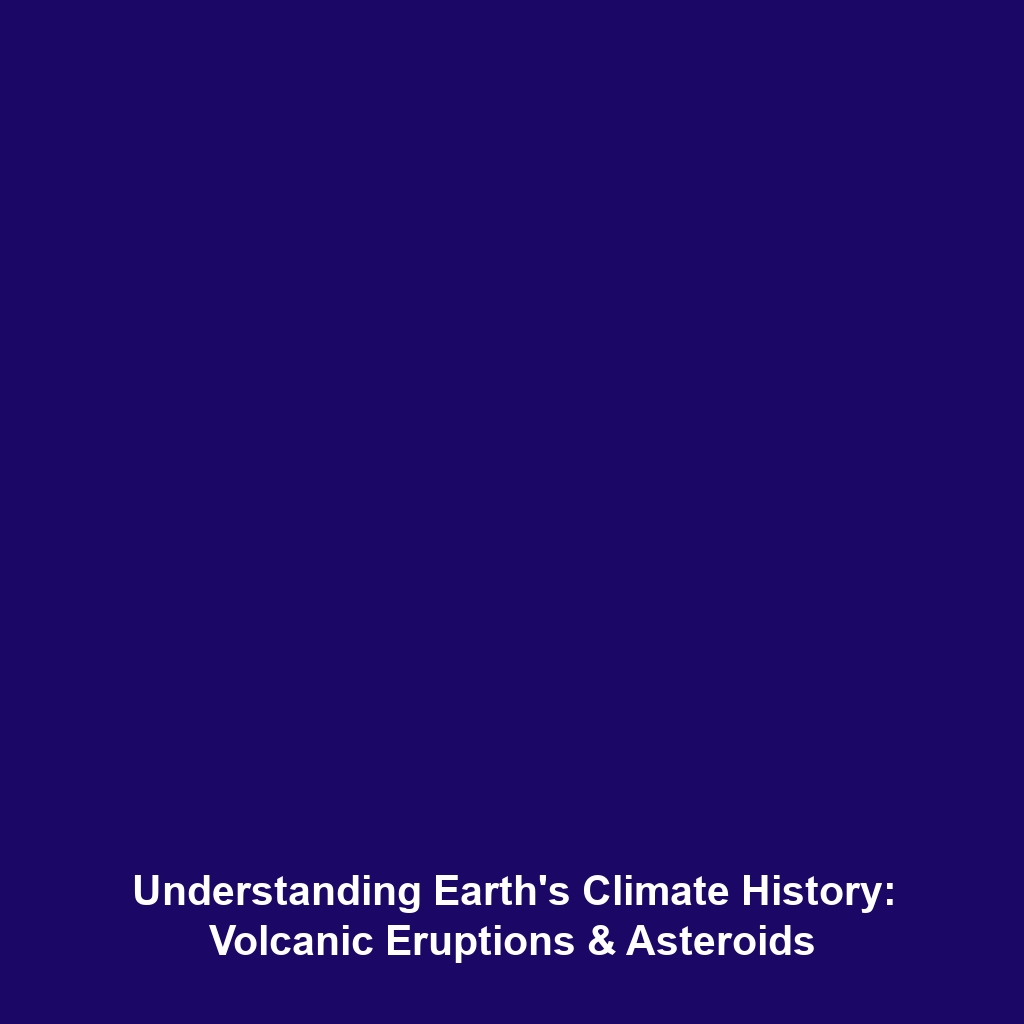Learning about the Earth’s Response to Extreme Events: Volcanic Eruptions and Asteroid Impacts
Introduction
This article explores the significant impacts of extreme events, such as volcanic eruptions and asteroid impacts, on Earth’s climate history. Understanding how these catastrophic occurrences have shaped our planet is crucial for predicting future climate changes. By uncovering the Earth’s response mechanisms, researchers can better comprehend the intricate relationship between extreme climate events and long-term environmental transformations. This knowledge is vital not only for historical insight but also for preparing for potential future upheavals.
Key Concepts
Understanding Extreme Events
Extreme events like volcanic eruptions and asteroid impacts can result in rapid and significant changes to the Earth’s climate. These phenomena are characterized by:
- Volcanic Eruptions: Emit ash and gases that can cool the atmosphere, affecting weather patterns.
- Asteroid Impacts: Create dust clouds that block sunlight, leading to drastic temperature drops, known as “nuclear winter” scenarios.
Evidence from Climate History
Research into climate history indicates how past events have led to significant biological and environmental shifts. The study of ice cores, sediment layers, and fossil records reveals:
- Prolonged cooling periods following large volcanic eruptions.
- Mass extinction events correlated with asteroid impacts.
Applications and Real-World Uses
The study of how the Earth responds to extreme events is crucial for various applications in Climate History:
- Climate Modeling: Enhancing predictive models to forecast future climate changes based on historical data.
- Disaster Preparedness: Informing policy and response strategies for natural disasters influenced by climate extremes.
Current Challenges
Despite the advancements in researching extreme events, certain challenges remain:
- Data Limitations: Incomplete records from ancient events make predictions less reliable.
- Complex Interactions: The interplay between various factors affecting climate response complicates modeling efforts.
- Public Awareness: Difficulty in communicating risks and implications to the general public and policymakers.
Future Research and Innovations
Future research is poised to delve deeper into the Earth’s responses to extreme events through:
- Advanced Climate Simulations: Using artificial intelligence for more accurate climate modeling.
- Enhanced Data Collection: Improved techniques to gather data from geological sites related to past events.
- Interdisciplinary Studies: Collaborating across fields to develop holistic understanding and solutions.
Conclusion
Learning about the Earth’s responses to extreme events such as volcanic eruptions and asteroid impacts plays a vital role in understanding Climate History. This knowledge not only enriches our historical perspective but also provides critical insights for future climate resilience strategies. To learn more about the impacts of climate on our planet, check out our other articles on climate change and natural disasters. Together, we can prepare for the challenges ahead.

Leave a Reply